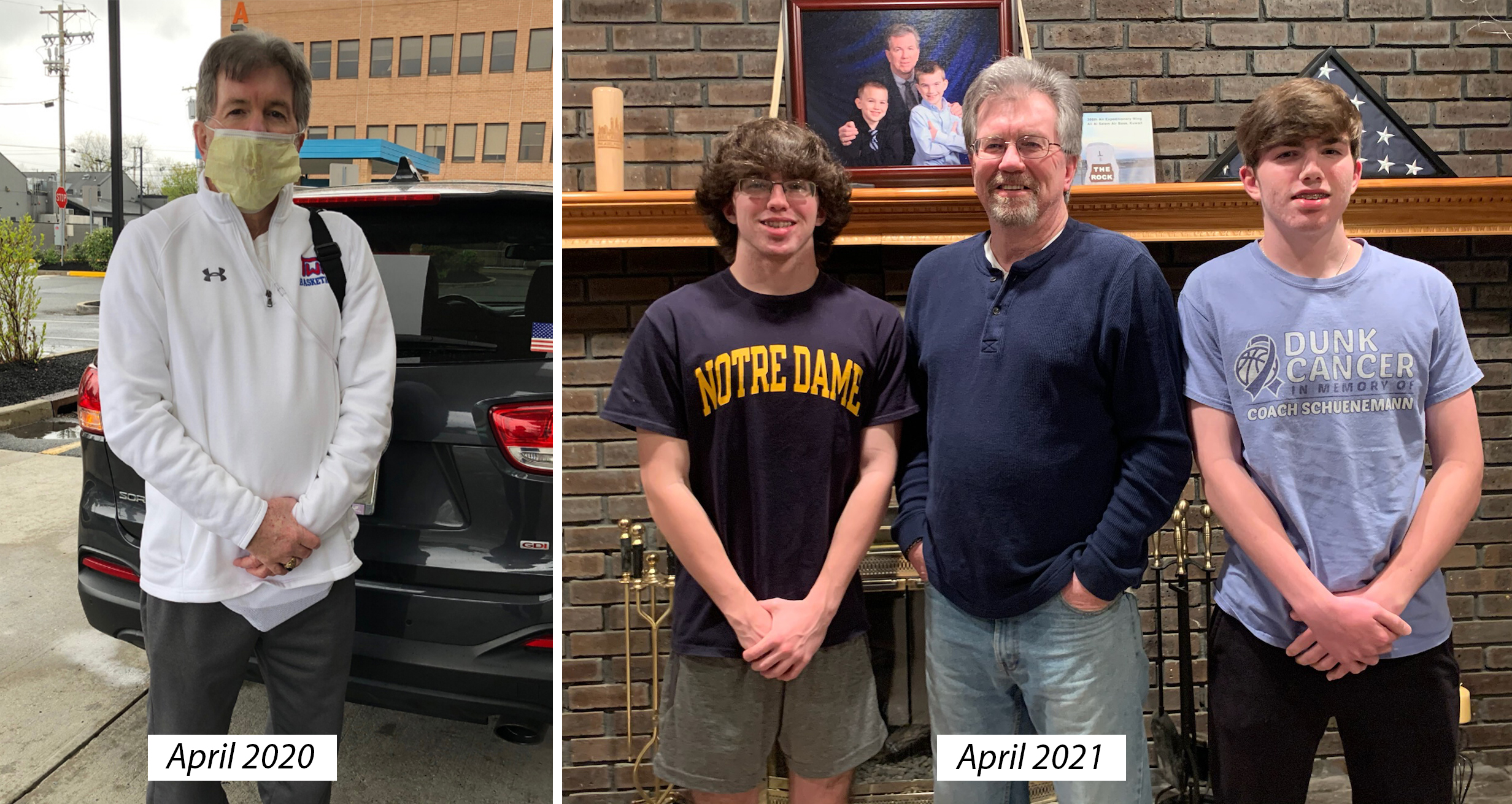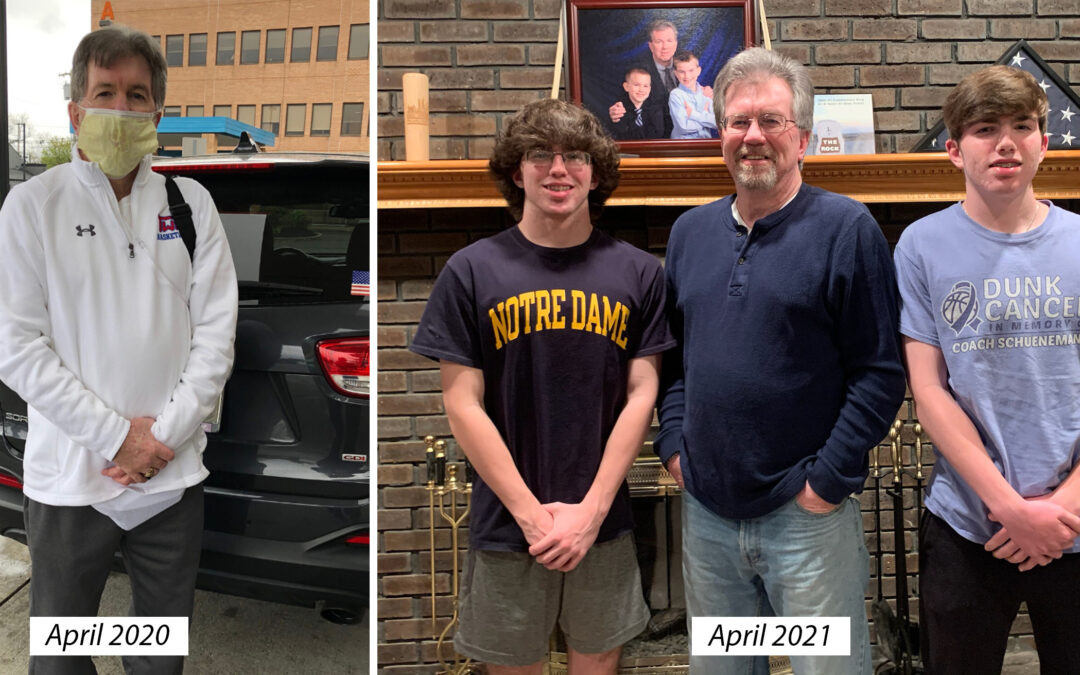
Tom McLaughlin shares that prior to COVID, he had zero heart complications and a generally ‘clean bill of health.’
The vast majority of COVID-19 survivors, luckily, won’t suffer lasting impacts. However, for some, like Washington Township’s Tom McLaughlin, the battle isn’t over once the virus leaves their system.
Last spring, at the start of the pandemic, McLaughlin, 66, contracted the coronavirus. What began as extreme headaches, fatigue, and shortness of breath, led to a 10-day stay at Jefferson Washington Township Hospital – seven of which were spent on a ventilator in the ICU.
After being discharged and sent home on oxygen, McLaughlin was in high spirits and felt great – so great that the following week he made a generous donation of food to the staff that cared for him. However, it wasn’t before long that he started to decline.
The shortness of breath had returned, McLaughlin recalls. “I couldn’t walk to the other end of my house or have a conversation without gasping for air. I didn’t know what was going on.”
On May 14, McLaughlin found himself, once again, admitted to the hospital. This time, blood clots were discovered on both of his lungs – what his physicians believed were a direct result of COVID-19. He was sent home on blood thinners, which he took for nearly four months, before the clots disintegrated.
During this time, McLaughlin also started to see a cardiologist – Dr. Steven DaTorre, of the Heart House – regularly. His bout with COVID-19 had reduced his heart muscle to a shocking 20%. Weakened heart muscle, as such, greatly increases the risk for cardiac arrhythmias – or irregular heart rhythms – as well as sustained cardiac events, including heart attack and sudden cardiac arrest, Dr. DaTorre says.
With this in mind, Dr. DaTorre placed McLaughlin on a protective LifeVest, which is a wearable defibrillator designed to continuously monitor and regulate arrhythmias.
McLaughlin shares that prior to COVID, he had zero heart complications and a generally “clean bill of health.” But, as trends have shown, McLaughlin is not the only victim of COVID-19 who went from having no cardiac complications to having severe ones, explains Dr. DaTorre. In fact, studies indicate that long-term cardiac issues due to COVID-19 are far more frequent than we actually know.
While the LifeVest served as a much-needed lifeline for McLaughlin, he admits it was difficult to adjust to. “Going from being very active, to requiring a LifeVest and having it get caught on everything I walked past, was frustrating. It was hard to sleep, hard to go to work – I just felt held back.”

Tom McLaughlin eagerly shared that he’s been cleared by his doctors to coach his local travel baseball team – one of his favorite hobbies.
On top of this, McLaughlin also remembers suffering from brain-fog – another common “long-hauler” symptom. It wasn’t until late summer, following a change in medications, that he says he noticed a huge shift in how he was feeling. “For the longest time, my colleagues looked at me differently. They were worried about me, always asking if I was okay. Then, one day, I just snapped out of it. I was back to my normal self. It was incredible.”
After spending around nine months on the LifeVest – and reaching around 38% heart muscle – it was time for Dr. DaTorre and McLaughlin to look at a more permanent intervention: a defribrillator implant.
“An implantable cardioverter defibrillator doesn’t require a major surgery, as you might expect,” Dr. DaTorre says. “We make a small incision right under the clavicle and place the small device – which is computer programmed – in a pocket between the muscles; we then gain access through a major vein and connect it to the heart.”
It’s been a little more than a month since McLaughlin had this done, but he says it’s already given him his life back. “I feel so much better just being able to do simple things again, like getting dressed for work and tucking in my shirt. It’s definitely boosted my self-esteem.”
McLaughlin also eagerly shared that he’s been cleared to coach his local travel baseball team – one of his favorite hobbies. However, he admits that he’s not in the clear. While his heart is likely to keep improving, he says that the long-term emotional impacts of his near-death experience will stick with him forever.
“Until COVID, I always thought I was invincible. I never thought about dying. Now I think about dying a lot and the affect it will have on my children and family. It’s all so real,” he says. “The upside to this is that it has changed how I react to things that used to easily get under my skin. The little stressors aren’t worth it anymore. I’m more patient with my kids, and I’m more grateful for what I have.”
McLaughlin is not alone in his experiences. His story mirrors what countless others have endured this past year.
“I think McLaughlin serves as an example that it’s not just pulmonary consequences that arise from COVID-19, but a whole gambit of life-long physical changes. For some people, their body is never the same,” says Dr. DaTorre.
McLaughlin reminds those who read his story to stay safe and be serious when it comes to COVID-19, even as vaccines roll out, as the lasting impacts of the virus are surely no joke.
– Sarah Galzerano

